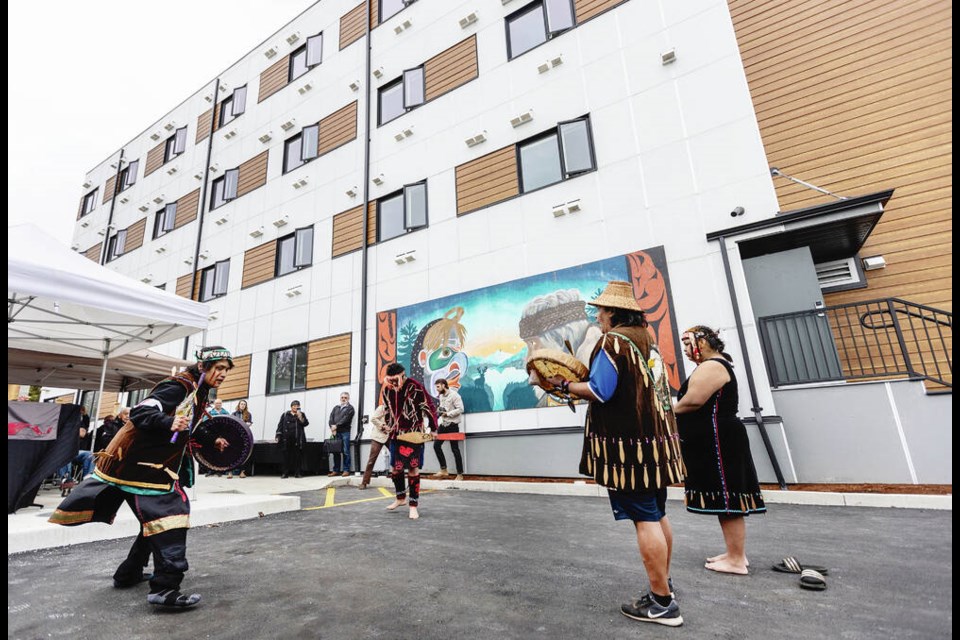A new supportive housing building in Vic West will soon welcome 43 Indigenous people to a permanent home with culturally specific supports.
The four-storey building at 865 Catherine St. will have one floor dedicated to residents with chronic alcohol addictions. Medical professionals will help them determine a frequency and amount to consume to avoid withdrawal symptoms.
Residents are expected to begin moving in from temporary housing sites, such as hotels, as well as from the street, in a couple of weeks in a phased approach, said Fran Hunt-Jinnouchi, executive director of the Aboriginal Coalition to End Homelessness Society, which will operate the housing.
“Housing is a start. What fosters transformation is connection,” she said.
The goal is to build a cultural community in the building that prioritizes spiritual well-being as well as physical and mental health. There will be elders on site providing cultural support and guidance to residents, who will be considered family members, Hunt-Jinnouchi said.
Rooms will feature items reflecting an individual’s heritage, such as a Metis sash in the room of someone who is Metis, she said. Cultural items in the building, such as wolf furs hung on the wall, provide opportunities for elders to share legends and teachings.
Residents will be invited to “land-based healing camps” — sacred places on the Island where they can meet knowledge keepers and elders and participate in spirit baths, prayers, and sacred fires.
The building’s alcohol harm-reduction program is based on a model already operated by the society in a culturally supportive housing facility downtown, where residents identify their beverage of choice and work with a nurse or doctor to determine daily times and amounts to drink it. The costs of the alcohol are split evenly between residents and the society, Hunt-Jinnouchi said.
Hunt-Jinnouchi recalled one man who had been homeless for more than 30 years and was afraid to trade his street community for four walls. After moving into the society’s culturally supportive housing and participating in a camp on the land, he felt ready to start treatment for his addiction.
“It happened because he had spent time on the beach. He had spent time around the fire in morning prayer, and he opened his heart to the power of the land,” she said.



